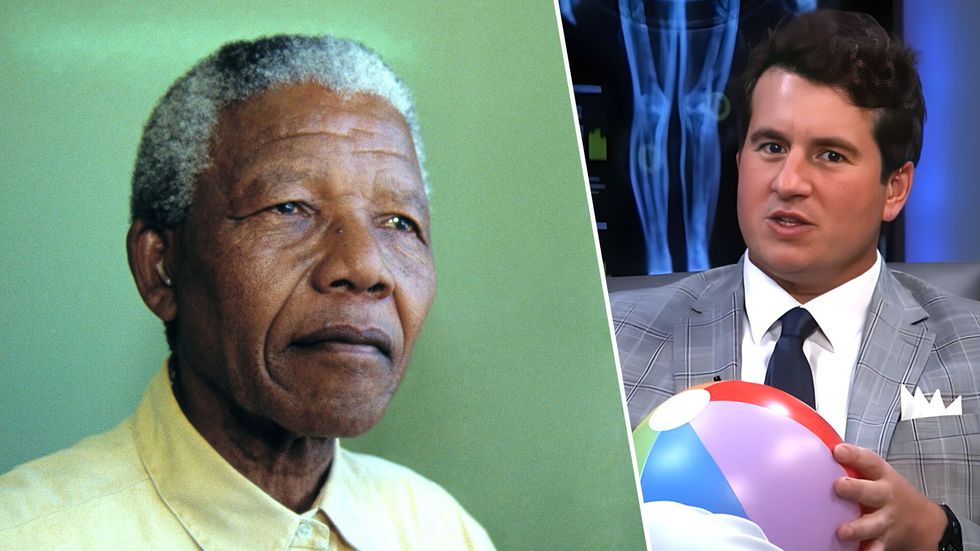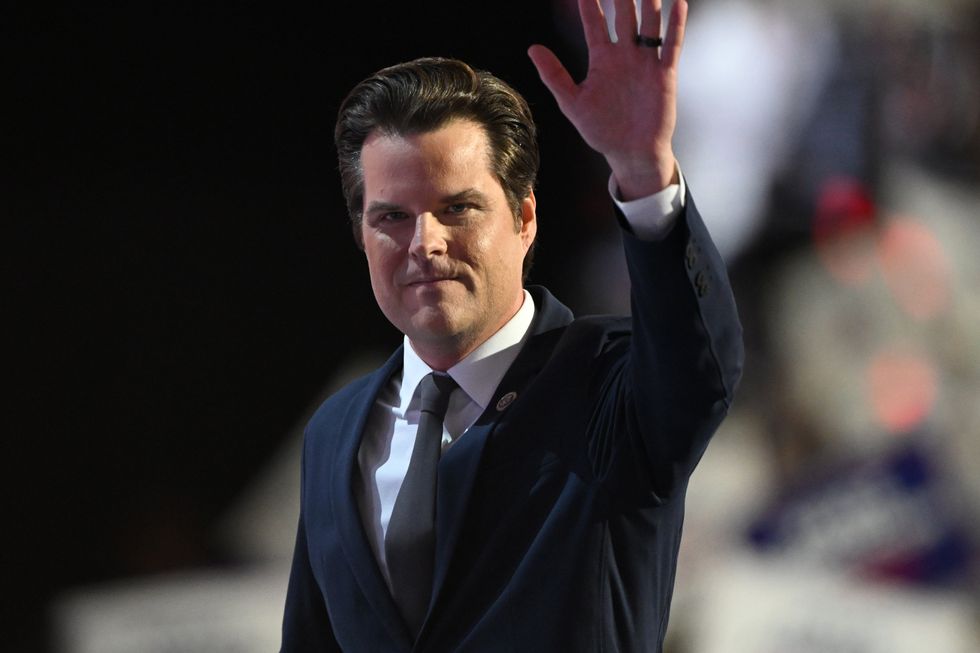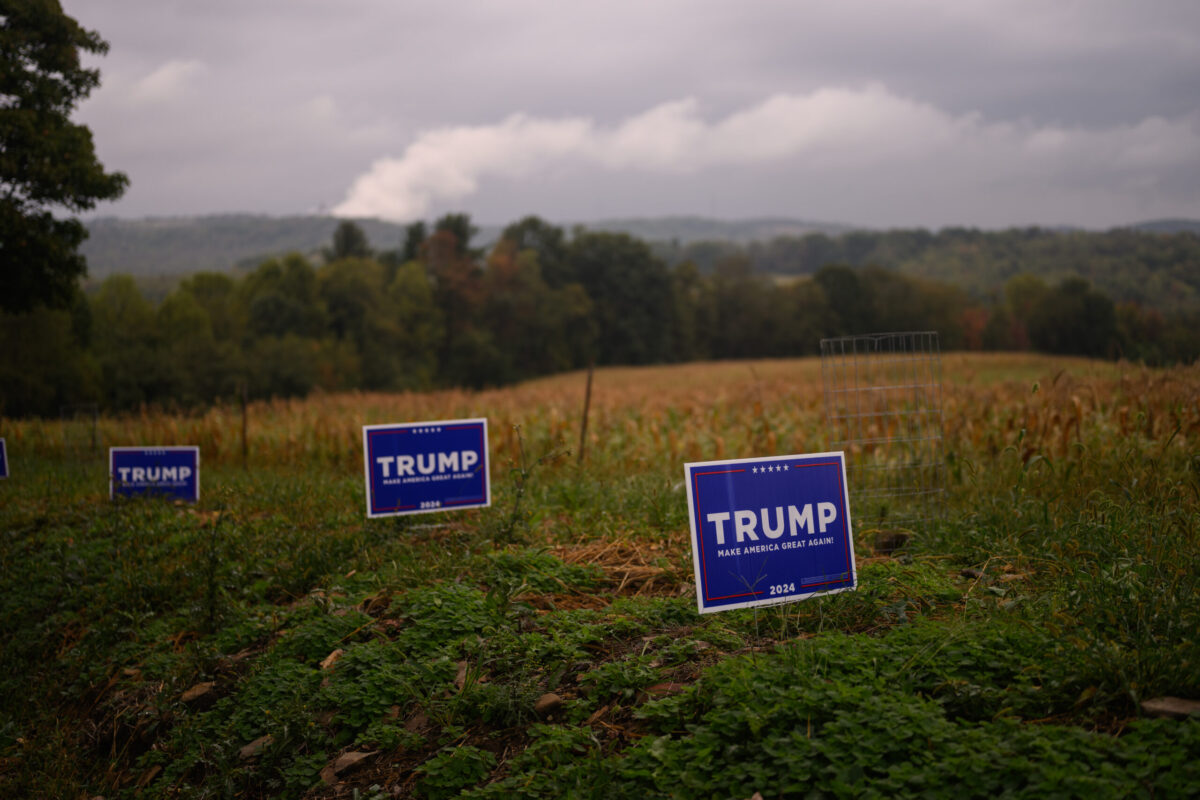INSANE conspiracy theory: Are the ‘Mandela effect’ and the ‘butterfly effect' connected?
The widely accepted definition of the Mandela effect explains it away as “a phenomenon where a large group of people remember an event or detail differently from its factual occurrence” — but Alex Stein of “Prime Time with Alex Stein” isn’t buying it. The effect was named after a “false memory” that was shared regarding Nelson Mandela’s supposed death in the 1980s, though he actually passed away in 2013. “They’re trying to lie. Mandela effects are real,” Stein says, adding, “and I’m about to prove it.” The first example Stein pulls is of the Monopoly man from the board game “Monopoly,” whom he recalls wearing a monocle over his eye when he was younger. “Apparently, the monocle never existed. Now people are going to say, ‘Oh are you getting him confused with Mr. Peanut, who does have a monocle?’” Stein predicts, before moving onto Jif peanut butter. The peanut butter brand is “Jif,” however, many people remember spreading the peanut butter as “Jiffy.” “This is very weird that it’s just Jif, that doesn’t even make sense. That’s a horrible name, they need to go back,” Stein says. “Who would even approve that?” While it’s all incredibly confusing, Stein does have a theory as to what’s really going on. “One of the theories is that it’s called the butterfly effect,” Stein begins. “There’s time travelers that are traveling and if you did time travel, like if you went and killed a butterfly, that could affect the whole future of humanity.” “Somehow we still have the memory because we lived it,” he continues. “But the time traveler messed it up.” Want more from Alex Stein?To enjoy more of Alex's culture jamming, comedic monologues, skits, and street segments, subscribe to BlazeTV — the largest multi-platform network of voices who love America, defend the Constitution, and live the American dream.


The widely accepted definition of the Mandela effect explains it away as “a phenomenon where a large group of people remember an event or detail differently from its factual occurrence” — but Alex Stein of “Prime Time with Alex Stein” isn’t buying it.
The effect was named after a “false memory” that was shared regarding Nelson Mandela’s supposed death in the 1980s, though he actually passed away in 2013.
“They’re trying to lie. Mandela effects are real,” Stein says, adding, “and I’m about to prove it.”
The first example Stein pulls is of the Monopoly man from the board game “Monopoly,” whom he recalls wearing a monocle over his eye when he was younger.
“Apparently, the monocle never existed. Now people are going to say, ‘Oh are you getting him confused with Mr. Peanut, who does have a monocle?’” Stein predicts, before moving onto Jif peanut butter.
The peanut butter brand is “Jif,” however, many people remember spreading the peanut butter as “Jiffy.”
“This is very weird that it’s just Jif, that doesn’t even make sense. That’s a horrible name, they need to go back,” Stein says. “Who would even approve that?”
While it’s all incredibly confusing, Stein does have a theory as to what’s really going on.
“One of the theories is that it’s called the butterfly effect,” Stein begins. “There’s time travelers that are traveling and if you did time travel, like if you went and killed a butterfly, that could affect the whole future of humanity.”
“Somehow we still have the memory because we lived it,” he continues. “But the time traveler messed it up.”
Want more from Alex Stein?
To enjoy more of Alex's culture jamming, comedic monologues, skits, and street segments, subscribe to BlazeTV — the largest multi-platform network of voices who love America, defend the Constitution, and live the American dream.
Originally Published at Daily Wire, World Net Daily, or The Blaze
What's Your Reaction?
































































































